Photo Credit: The Eternal Struggle Of Credit Where It’s Due
The photo credit is an important, yet sometimes elusive, piece of the professional architecture photographer pie. With the speed at which the photography landscape is changing, there are varying standards for getting photo credit in almost every situation. Here’s how I make sure I’m properly credited for my work, and how you can stand up for your own work to make sure you get credited as well.
Where should I be credited?
Magazines and editorial
Unequivocally yes. I have not had too much trouble being credited in magazines or editorial use, either web or print. Unfortunately it seems that photographer credits are being printed smaller and smaller, or are presented vertically in the gutter of the magazine. Whoever started this trend: you’re evil. In any case, credit in the editorial world should be a given, but make sure that it’s in the contract to remove any gray area.
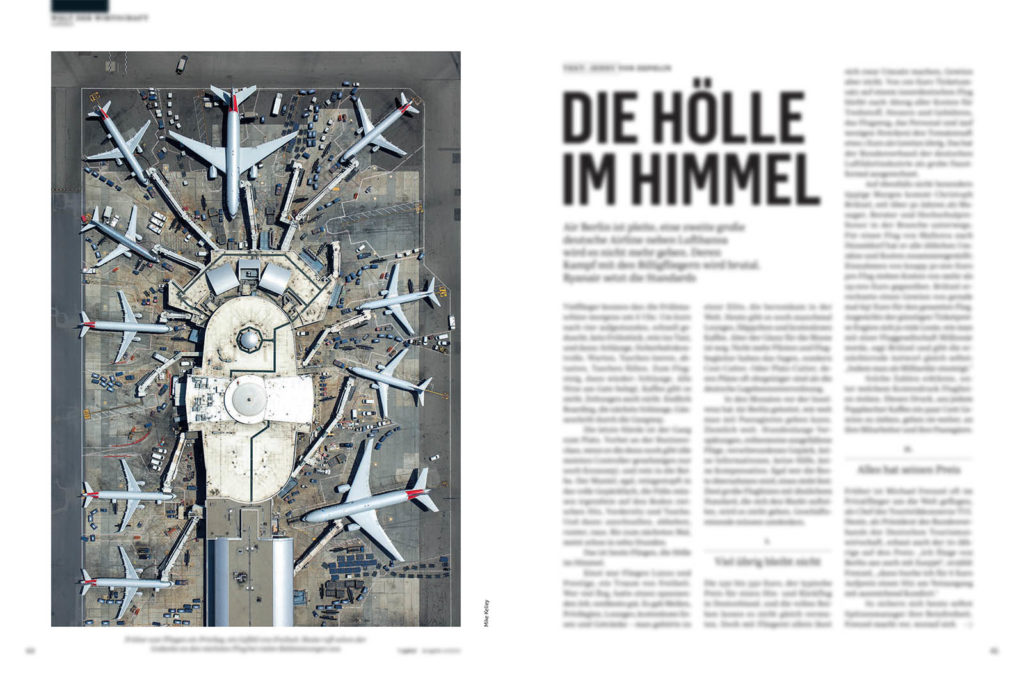
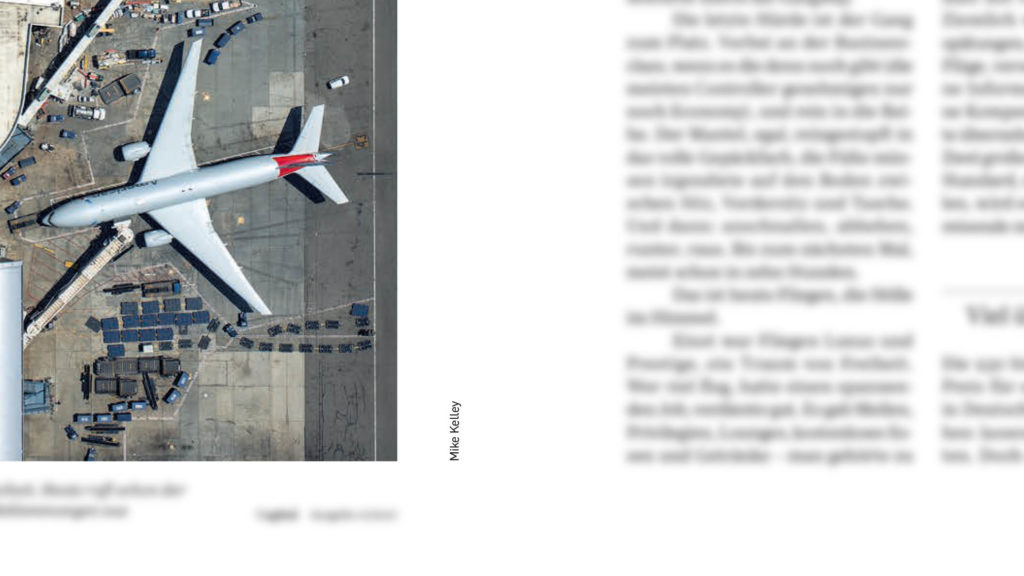
Social media
Always. Pretty much all of my best clients have no problem displaying a photo credit in their social media posts, it’s good for everyone involved. It is worth noting that some clients may have to be reminded; this generally occurs when the person running the social media didn’t have anything to do with the shoot. Perhaps a marketing representative was on location with you and things got lost in translation or wires were crossed; not a big deal. It’s also worth mentioning that a ‘tag’ is not really enough, the credit should be in text form and again, it must be a clickable handle – writing “Mike Kelley” doesn’t really do much and nobody is ever going to search for your name, so make it as easy as possible for the credit to work for you.
I also make sure to tag my clients in my photographs as well.
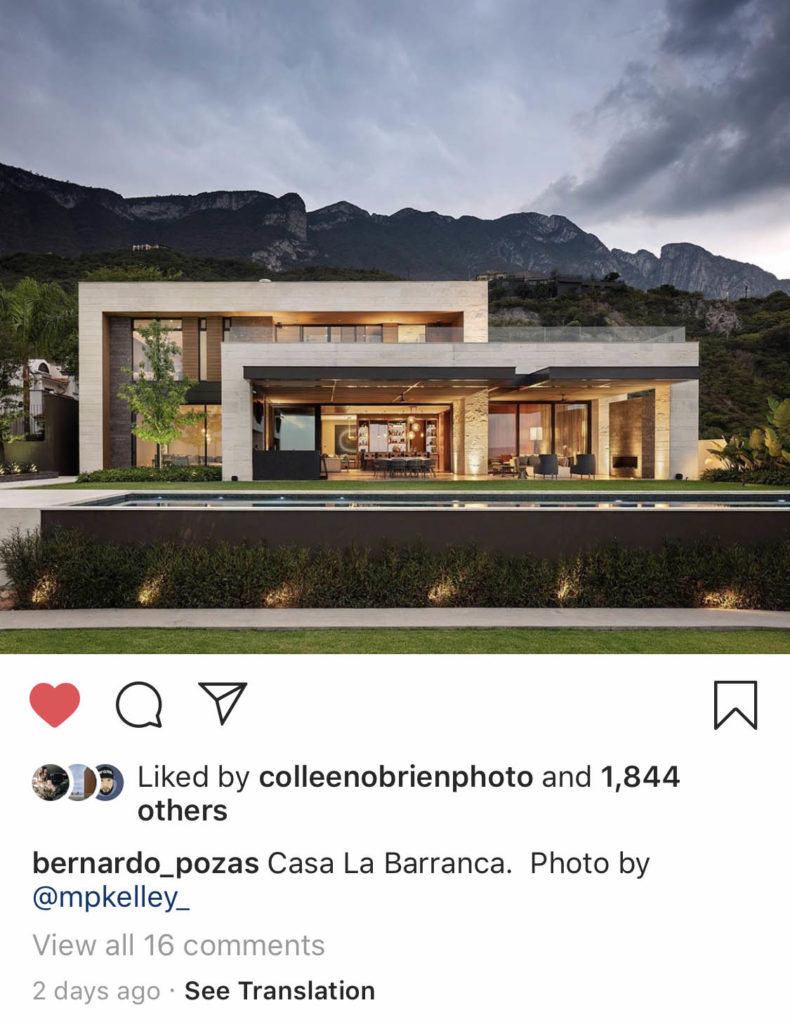
Web use
For web ads, generally you won’t see a credit. Editorial web, as mentioned above, always.
Books
In my experience, photo credit in books is always given – space is not at as much of a premium as advertisements and publishers have thankfully always been aware of the importance. Credit in most cases is given in an appendix at the back of the book (or sometimes on the dust jacket for cover images in fiction, or on the copyright page). In art and photography books, chances are it’ll be in the back, neatly organized as such:
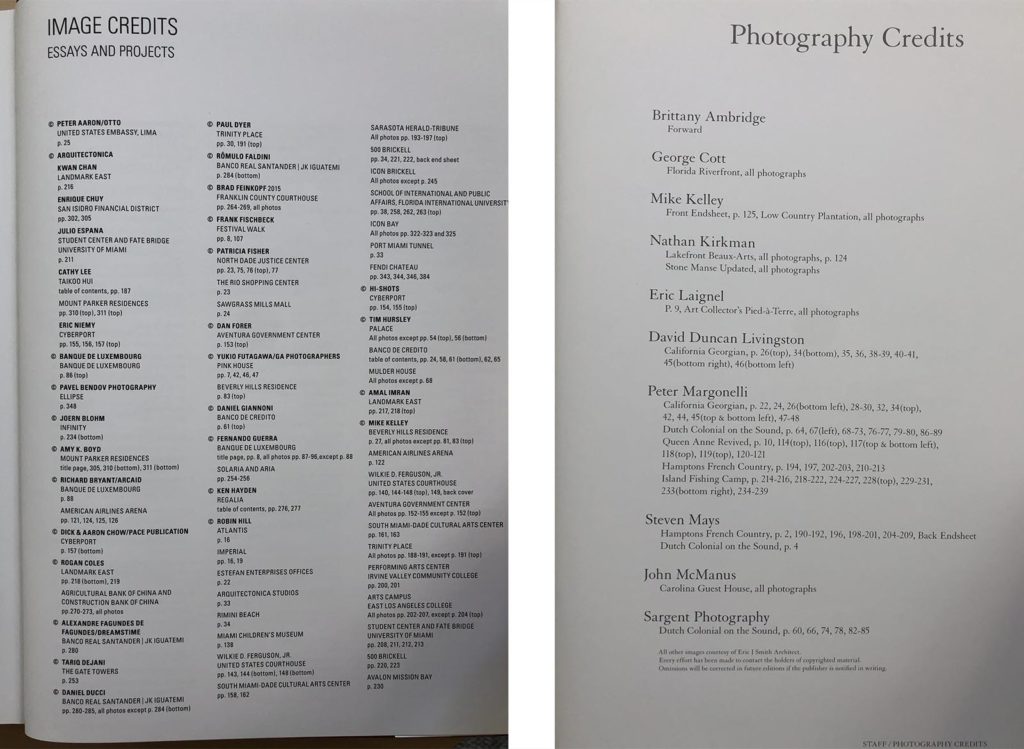
Advertising
This is one that is interesting to me. There is usually no credit given for advertising photography and I honestly don’t know why, so I will speculate. If anyone does know why feel free to post explaining. I assume that it is because:
1) Budgets are so much higher and therefore you can live without a credit when you are stacking five figures after a day of shooting
2) A lot of advertising work is “work made for hire” and therefore the property of the company commissioning the photography
3) It’s harder to squeeze a photo credit into a perfectly laid-out and designed ad and
4) To protect competitive advantages in the big-budget advertising world. I have seen a few ads displaying photographer credit, though it is rare.
What is more common is that there will be no photographer credit on the actual ad, but in social media posts, there will be a credit somewhere in the text – at least, this has happened to me on more than one occasion. Does not seem like a battle that will be won anytime soon, though.
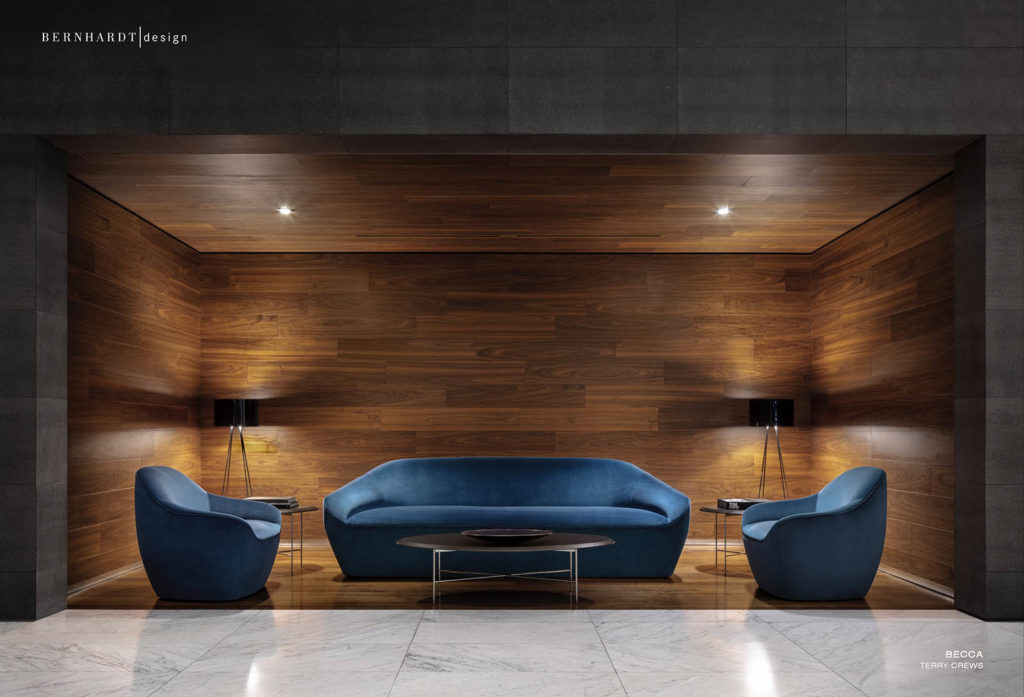
Real Estate Photography
Urrghgeirguhaerg;9avn0[348vn. That was my head hitting my keyboard. For some reason (anyone want to let us know why in the comments?) photographer credit in the real estate industry is almost non-existent. I am assuming this has to do with MLS “rules” which are egregious enough as they are. I can accept that there may not be space to cram a credit on an MLS ad which are pathetically small as they are, but oftentimes when realtors provide images to a third party such as a magazine, news source, or TV show, they replace the photographers credit line with something that says “REALTY COMPANY INC” or similar. I find this infuriating. They don’t (or at least shouldn’t) own the photographs, so I have no idea why they are taking credit for it. I also don’t see a reason why photographers aren’t credit in social media posts in many cases – there are often plenty of other involved parties credited, but not photographers. I only work with a handful of select realtors and they are pretty great at providing credit when I asked – I feel grateful for that, but I feel for the thousands of photographers who struggle with this.
How to ensure you are credited
Make it contractual. Right in my contact, below the payment terms, is this:
Image Usage, Social Media, Credit
When submitting work to publications please credit “Mike Kelley” when photos are used editorially. Please do not replace the “Mike Kelley” credit with alternative name (such as architecture firm, brokerage, etc) when supplying images for editorial/advertorial use. Doing so will constitute copyright infringement and fees will be assessed after multiple incidents.
On all social media posts, a clickable credit (e.g. @mpkelley_ on instagram) is required.
Bottom Line
You’re not being a diva, being greedy, or being difficult to work with for asking for a photo credit. In most cases it is industry standard across artistic genres (music, photography, painting, design, etc) so you shouldn’t feel bad about it and you definitely should not feel ashamed if a client is trying to bully you on it. The best way to ensure you get credit is to be proactive and polite, and if a credit is missed, a simple message asking for it to be added should suffice.
Credit is, after all, one way we get more work – and in a competitive industry every little bit helps.
